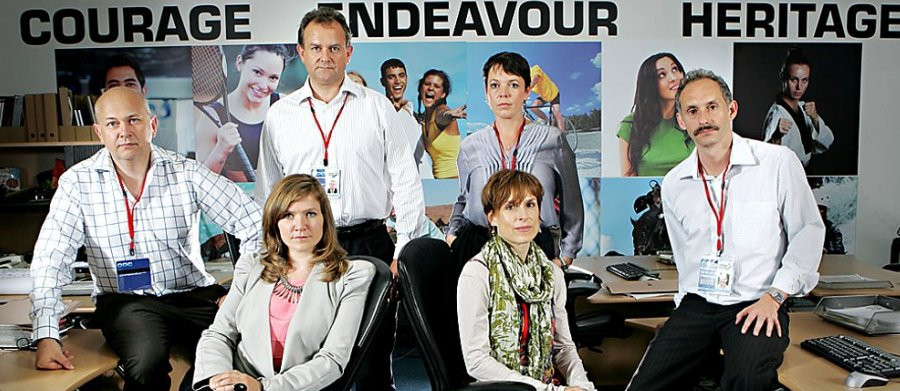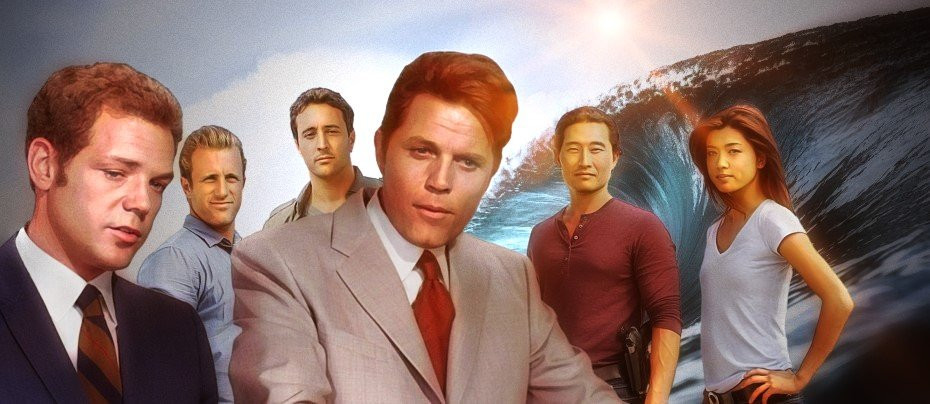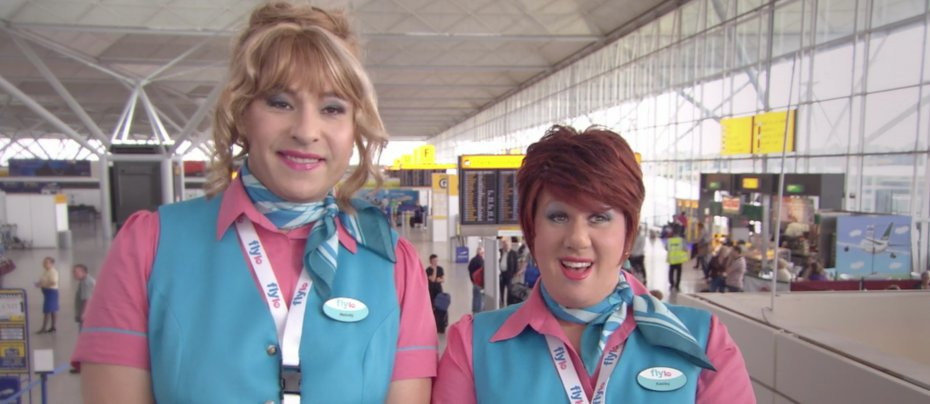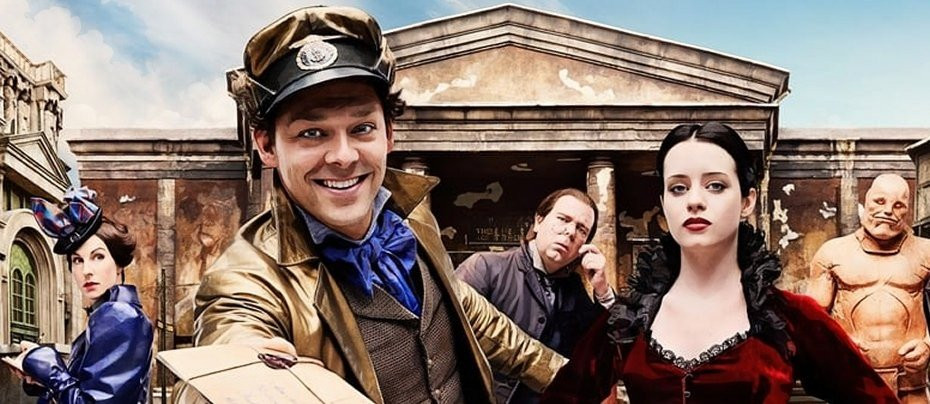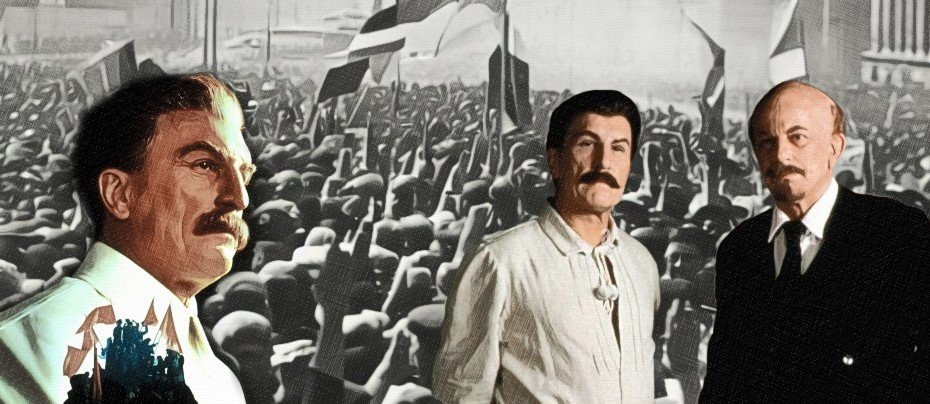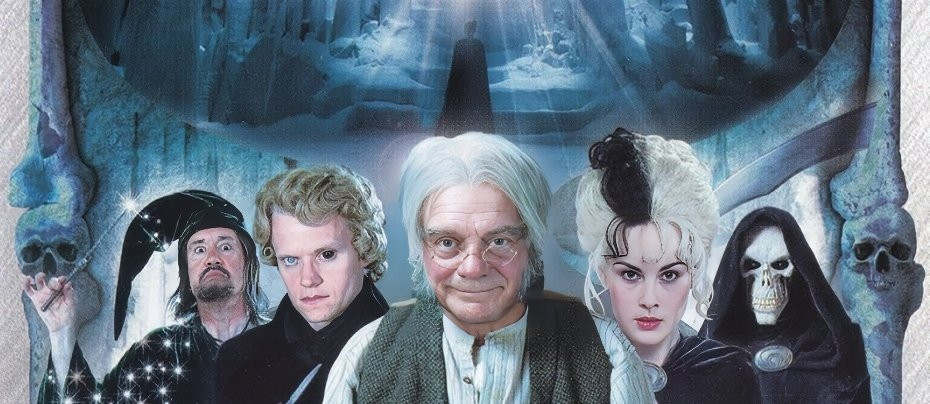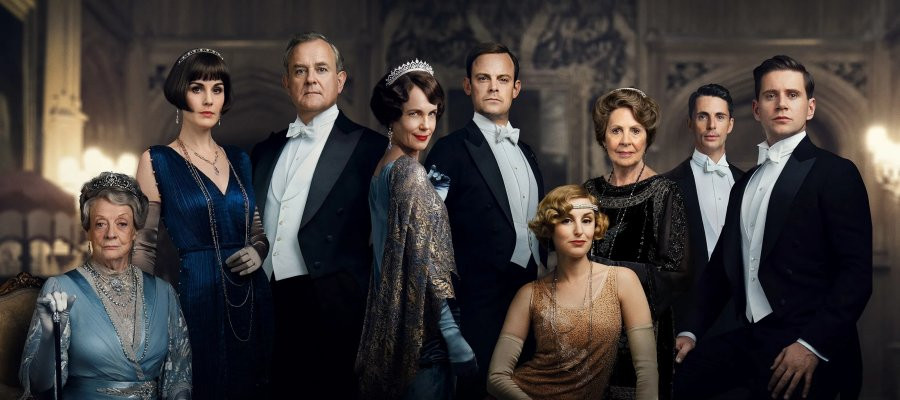
Downton Abbey
2010 - United KingdomDownton Abbey, the British period drama created by Julian Fellowes, premiered in 2010 and quickly became a cultural and critical landmark. With its intricate character development, sweeping historical scope, and opulent visual style, the series offers a compelling portrait of a society in flux. Set between 1912 and the mid-1920s, the story follows the aristocratic Crawley family and the loyal staff who serve them, all under one roof at the grand estate of Downton Abbey.
From the outset, the series anchors personal stories within the framework of real-world events. It opens with the 1912 sinking of the Titanic, which sets off a crisis in the Crawley household over inheritance, and propels the introduction of a new heir, Matthew Crawley. From there, the narrative weaves through major historical milestones, including the outbreak of the First World War, the devastating Spanish influenza pandemic, the Irish War of Independence, and the British general election of 1923. The show’s sixth and final season introduces the rise of the working class during the interwar period, quietly hinting at the eventual erosion of the British aristocracy's traditional power and privilege.
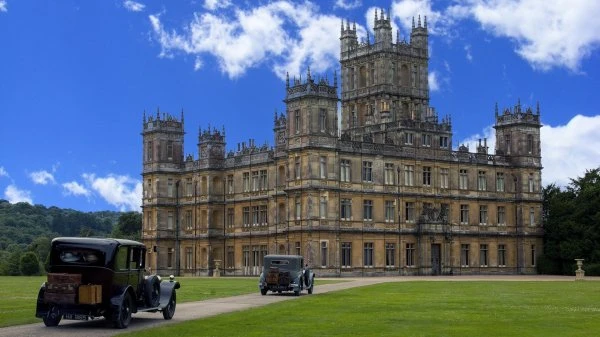
The titular estate is not just a setting—it’s a character in itself. Set against the rolling countryside of Yorkshire, Downton Abbey symbolizes the grandeur and stability of the old order. Highclere Castle in north Hampshire, used for exterior and much interior filming, enhances this image of aristocratic splendour. The more utilitarian spaces, such as the kitchen and servants' quarters, were constructed at Ealing Studios, helping to contrast the Crawley’s’ world of luxury with the servant class’s domain of labour and duty.
This contrast between “upstairs” and “downstairs” life is fundamental to the series’ structure. The audience moves fluidly between drawing rooms and sculleries, capturing the hierarchies, dependencies, and tensions that defined Edwardian society. Through this dual perspective, the show examines themes of class, duty, loyalty, and aspiration from multiple angles.
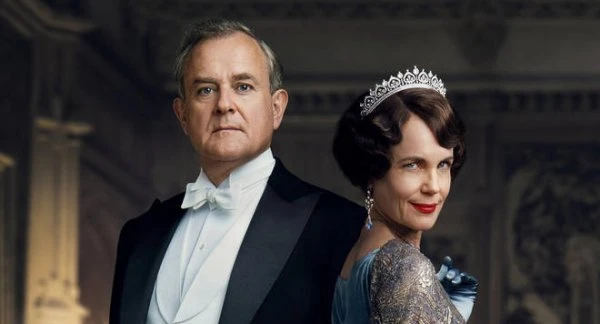
At the core of the narrative is the Crawley family. Lord Robert Crawley (Hugh Bonneville), the Earl of Grantham, is a steadfast guardian of tradition, torn between duty to his heritage and the shifting world outside his estate’s walls. His American wife, Cora (Elizabeth McGovern), offers a measured pragmatism that often helps the family adapt rather than resist.
Their three daughters—Mary, Edith, and Sybil—represent different responses to the changing role of women. Mary (Michelle Dockery), poised and calculating, initially seeks security through marriage but evolves into a more self-assured and independent figure, particularly after personal tragedy. Edith (Laura Carmichael), often in her sister’s shadow, transforms from a wallflower into a successful writer and independent mother, her arc one of the series’ most rewarding. Sybil (Jessica Brown Findlay), the youngest, is the family’s idealist, passionately committed to social reform and willing to defy class expectations by marrying the family’s Irish chauffeur, Tom Branson (Allen Leech).
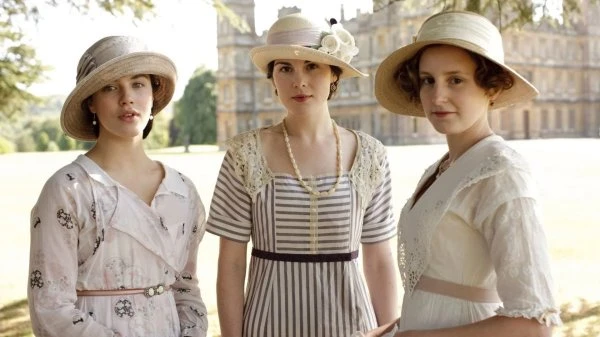
Branson himself emerges as a bridge between the upstairs and downstairs worlds. Initially viewed as a rebellious outsider, his marriage to Sybil and later role as estate manager help integrate him into the Crawley fold, even as he holds fast to his working-class roots and political ideals.
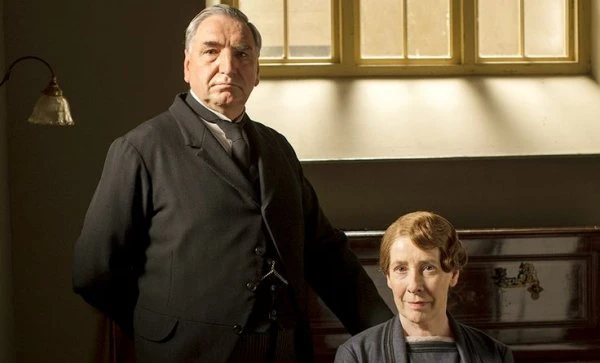
Meanwhile, the servants below stairs are fully realized characters with their own ambitions, heartaches, and loyalties. Mr. Carson (Jim Carter), the stoic butler, and Mrs. Hughes (Phyllis Logan), the wise housekeeper, maintain discipline and order, forming the emotional backbone of the staff. Their evolving relationship mirrors the broader arc of change within the household.
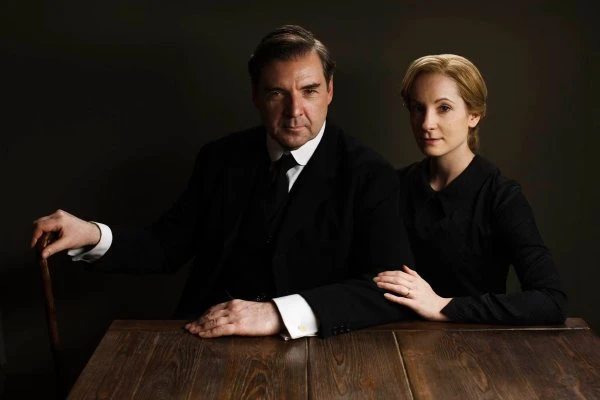
Anna (Joanne Froggatt), a compassionate lady’s maid, and Mr. Bates (Brendan Coyle), a brooding valet with a complicated past, anchor some of the series' most emotionally charged storylines. Their enduring love, marred by scandal and misfortune, brings depth and pathos to the narrative. Other servants, like Daisy the kitchen maid and Thomas Barrow the ambitious footman-turned-butler, depict the struggles of those with limited means trying to carve out better lives amid rigid social expectations.
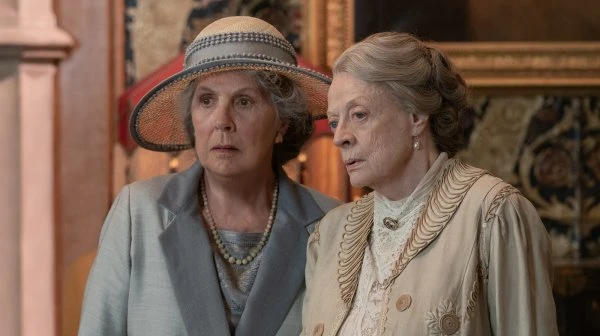
No review of Downton Abbey is complete without mentioning Maggie Smith’s unforgettable portrayal of Violet Crawley, the Dowager Countess of Grantham. As the sharp-tongued matriarch, Violet embodies the fading Edwardian order with both stubbornness and wit. Her verbal sparring, especially with Isobel Crawley (Penelope Wilton) and Cora, provides many of the show’s most memorable moments.
Yet Violet is not static; her journey reveals surprising adaptability and emotional depth. Over time, her fierce loyalty to family coexists with a growing, if reluctant, acceptance of modern realities. Smith’s performance won widespread acclaim, blending biting humour with quiet vulnerability, making the Dowager Countess one of television’s most iconic characters.
Throughout its run, Downton Abbey explores the shifting tides of British society. The series charts the erosion of rigid class structures, the push for women’s rights, and the effects of global conflict and technological advancement. By tying these transformations to personal narratives—loss in wartime, romantic upheavals, economic struggles—the series avoids becoming preachy, instead offering a humanized portrayal of historical change.
By the end of the sixth season, the Crawley family has adapted in ways that would have been unthinkable at the start. Mary runs the estate with business acumen; Edith lives independently as a successful publisher; and Tom Branson is fully integrated into the family’s leadership. The servants, too, see new opportunities beyond Downton, reflecting the rise of the working class and the slow democratization of British society.
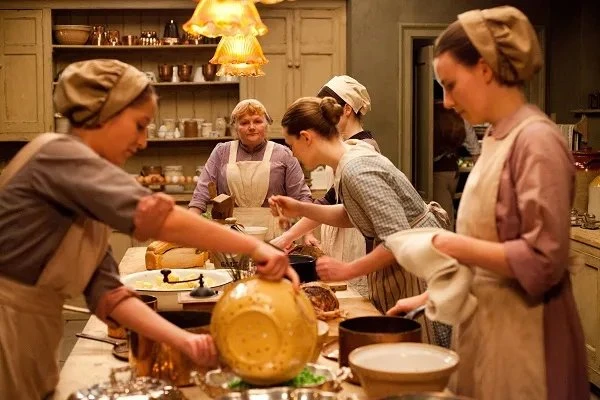
Downton Abbey received extensive critical acclaim and became a landmark in television history. It was the most-watched series on both ITV in the UK and PBS’s Masterpiece in the United States. The show earned numerous accolades, including a Golden Globe Award for Best Miniseries or Television Film and a Primetime Emmy for Outstanding Miniseries or Movie.
Following its first two seasons, it garnered a record-breaking 27 Emmy nominations—the most for any international series at that point—and in 2011, was recognized by Guinness World Records as the most critically acclaimed English-language TV series. It also became the most successful British costume drama since Brideshead Revisited (1981).
While many praised its lush production, colourful characters, and emotional storytelling, some critics derided it as overly sentimental or historically soft. Still, many fans and defenders argue that its occasionally melodramatic tone is precisely what makes the series so engaging—it balances the grand with the intimate, allowing audiences to connect deeply with its characters.
Downton Abbey inevitably drew comparisons to Upstairs, Downstairs, the pioneering 1970s British series that also explored class divisions within a large household. While Downton shares thematic DNA with its predecessor, it expanded the scope and deepened character development in ways that resonated with modern audiences. Both series reflect the complexities of British society, but Downton Abbey brought these themes to a global stage with higher production values and a broader historical sweep.
The show's influence extended well beyond television. It inspired renewed interest in British period dramas, influenced fashion and tourism, and established a devoted international fanbase. Its success sparked a wave of related productions, including stage adaptations, merchandise, and even culinary events themed around Edwardian Britain.
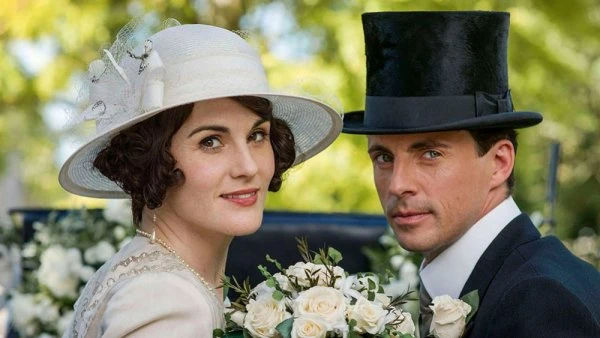
The success of the original series led to two feature films:
Downton Abbey: The Movie (2019) continues the saga as the Crawleys prepare for a royal visit. With the full ensemble cast returning, the film delivered the same blend of grandeur and intimacy, achieving both critical and commercial success by grossing over $190 million worldwide.
Downton Abbey: A New Era (2022) expands the universe further. This time, the story splits between Downton and the south of France, where the family inherits a villa. Themes of aging, legacy, and the encroachment of modernity play out against the rise of cinema and cultural change in the 1920s.
A third and final instalment, Downton Abbey: The Grand Finale, is currently in production. Anticipation is high, as fans await the closing chapter of a story that has spanned over a decade and touched millions worldwide.
Downton Abbey remains a landmark in modern television—an elegant, emotionally rich narrative that successfully marries historical drama with compelling personal stories. By exploring the interwoven lives of aristocrats and servants during a period of profound change, the series offers a thoughtful, humanistic portrayal of a world in transition. Its characters, conflicts, and lavish setting continue to resonate long after the final episode aired, securing its place as one of the most beloved dramas of the 21st century.
Seen this show? How do you rate it?
Seen this show? How do you rate it?
Published on April 30th, 2025. Written by Laurence Marcus for Television Heaven.



